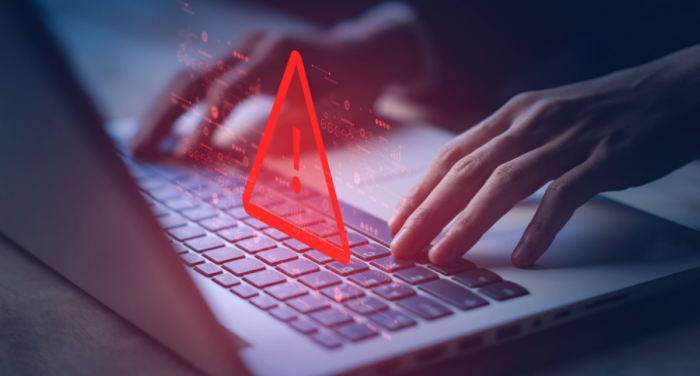OT Cybersecurity in Healthcare: Ensuring Compliance, Safety

The healthcare industry is experiencing an unprecedented shift toward digitalization, integrating advanced technologies to improve patient care and operational efficiency. However, this rapid transformation also exposes healthcare institutions to new cybersecurity threats. With HIPAA regulations and industry-specific compliance requirements in place, safeguarding patient data, securing medical devices, and protecting operational technology (OT) infrastructures is more critical than ever.
The Rising Cybersecurity Threat in Healthcare
Healthcare organizations store vast amounts of Protected Health Information (PHI) and Intellectual Property (IP), making them prime targets for cybercriminals. Unlike traditional IT security, OT cybersecurity focuses on securing medical devices, hospital networks, and industrial control systems that are vital for patient care and facility management.
- Data Breaches & Ransomware Attacks
Cybercriminals target Electronic Health Records (EHRs), exposing confidential patient data or demanding ransom payments.
A single breach can cost millions in fines, lawsuits, and lost patient trust.
2. Vulnerabilities in Legacy Systems
Many healthcare facilities still use outdated software and medical devices that lack modern security features.
Without regular updates, these systems become easy entry points for hackers.
3. IoT and Connected Medical Device Risks
Devices such as infusion pumps, MRI machines, and remote monitoring tools can be hacked, leading to potential life-threatening consequences.
Weak security in Internet of Medical Things (IoMT) increases the risk of unauthorized access.
4. Regulatory & Compliance Challenges
Compliance with HIPAA, FDA, and other industry-specific regulations is crucial for protecting patient data.
Failure to meet security standards can result in hefty fines, legal penalties, and reputational damage.
5. Supply Chain Security Risks
Third-party vendors providing medical software, cloud storage, or digital tools may introduce vulnerabilities.
Attackers often infiltrate healthcare networks through unprotected third-party connections.
The Importance of OT Cybersecurity in Healthcare
Unlike traditional IT security, OT cybersecurity secures the critical infrastructure that healthcare facilities rely on. From automated laboratory systems to hospital HVAC controls, protecting these assets ensures uninterrupted patient care and compliance with safety standards.
Benefits of Implementing OT Cybersecurity Solutions:
✔ Ensuring Compliance with HIPAA & Industry Standards
✔ Protecting Patient Privacy & Confidentiality
✔ Securing IoMT & Medical Devices from Cyber Threats
✔ Preventing Ransomware & Data Breaches
✔ Enhancing Resilience Against Cyber Attacks
Key Cybersecurity Strategies for Healthcare Organizations
To safeguard sensitive patient data and medical infrastructure, healthcare providers must adopt a proactive security approach that includes:
1. Network Segmentation & Zero Trust Security
- Isolate critical hospital systems from external access points.
- Restrict network privileges to only authorized personnel and devices.
2. Continuous Monitoring & Threat Detection
- Implement real-time monitoring tools to detect and respond to threats instantly.
- Use AI-driven cybersecurity solutions to predict potential vulnerabilities.
3. Securing IoMT & Medical Devices
- Conduct regular security assessments of all connected medical devices.
- Update firmware and software to patch vulnerabilities.
4. Data Encryption & Access Control
- Encrypt patient data both in transit and at rest.
- Implement multi-factor authentication (MFA) for sensitive systems.
5. Incident Response & Disaster Recovery Planning
- Develop a cyber incident response plan to minimize downtime during attacks.
- Regularly backup patient records and hospital data to secure cloud storage.
How Sekurinova Protects Healthcare Infrastructure
At Sekurinova, we specialize in OT cybersecurity solutions tailored for healthcare facilities, hospitals, and medical institutions. Our comprehensive security services ensure:
Regulatory Compliance (HIPAA, FDA, HITECH, NIST)
24/7 Threat Monitoring & Incident Response
Advanced Medical Device Security & Risk Assessment
Automated Compliance Audits & Reporting
End-to-End Protection for IoMT & Legacy Systems
Conclusion
As healthcare digitalization continues to grow, so does the threat landscape. Cyberattacks on medical institutions can jeopardize patient safety, disrupt healthcare operations, and result in legal consequences. Investing in OT cybersecurity is not just about compliance—it’s about protecting lives.
Is Your Healthcare Facility Cyber Secure? Let Sekurinova help you build a resilient and compliant security infrastructure. Contact us today



